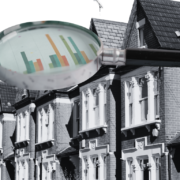The attractiveness of the FTSE 100 is undimmed, with the index set to flirt again with record highs in early trade.
The record closing high of 7,877 is in reach, and another surge in buying could see stocks surpass the best level of 7903, seen on May 22, 2018.
Hopes that inflation will keep descending from its peak in the US, after encouraging data last week, saw Wall Street end on a Friday high, with positive vibes spilling over to Monday trades in Asia.
With British consumers flexing their spending muscle over the Christmas period and the country looking more likely to have escaped falling into recession in 2022, the waves of optimism have been lapping over the London market.
Investors appear to have fallen back in love with UK assets, after a difficult period when FTSE 100 was the wallflower among global indices.
Confidence has rebounded as investors eye up China’s reopening, helping commodity stocks.
A stronger than expected appetite from consumers has boosted the retail, travel and hospitality sectors, while banks are still riding the wave of higher interest rates.
Things are looking up for the UK, and the footsie is the flavour of the month, but there is a risk this could be a short-lived crush.
There are still niggles of worries which could blow up about ebbing consumer and company resilience in the months to come on both sides of the Atlantic.
US banks have set aside some hefty sums to cover the potential for bad debt to escalate if a recession rolls in. With the UK housing market set to turn from a quiver to a shiver as painful rate rises start to hit, confidence may start to seep away again.
The snapshot of UK consumer prices due on Wednesday will be closely watched as an indicator of whether the Bank of England will judge it necessary to keep ramping up interest rates from next month.
It’s clear that more vulnerable sections of society are facing a super-tough time right now, The HL Savings & Resilience Barometer shows that three quarters of single parents have poor or very poor resilience, compared to the around a quarter of couples with children.
Global political and business leaders gathered in Davos are clearly concerned about the cost-of-living crisis and the severity of the incoming global downturn, with the issues set to take centre stage at this week’s World Economic Forum meeting.
There are worries that the mounting cost of trying to mitigate the effect of painful inflation for citizens will mean there’s less for governments to spend on crucial projects to accelerate toward net zero targets.
This could lead to destabilising protests, which could erode their power.
The prospect of debating painful consumer prices and climate change with attendees who may have flown in by private jet, is likely to have deterred some world leaders from attending, conscious of how sensitive the voting public are to allegations of hypocrisy.
With the fracturing of the political landscape, once elastic supply chains turning brittle and the prospect of new trade tensions escalating, there are some hopes this event might jump-start a new circuit of networks to help find solutions.
It’s highly unlikely any concrete developments will emerge from the elite’s discussions this week this week, with greenwashing criticism likely to flood in.
Instead, progress is much more likely to come from the fringes of the forum.
Davos is like a Dragon’s Den on a global scale, with entrepreneurs desperately searching for investment to fund their ideas and fledgling projects.
They will be trudging along the main street, where restaurants and shops have been transformed into huge stands for global brands, and will attend every event they can to drum up interest.
If they succeed in finding matches, it should spark a fresh round of much needed innovation as the world grapples with the transformation to net zero and the cost-of-living drain on resources.
























Comments